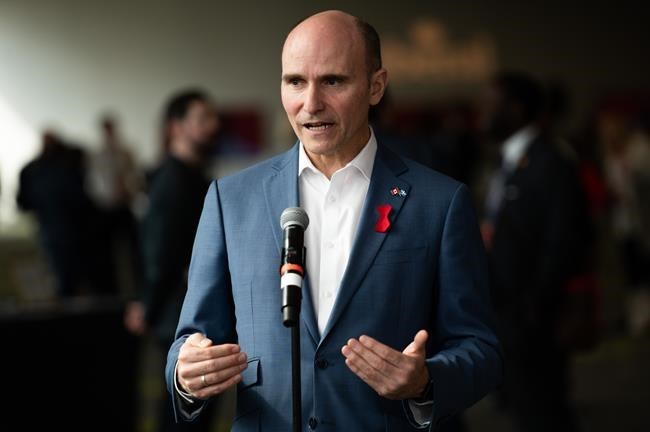OTTAWA — COVID-19 isn't over even after the World Health Organization declared Friday that the illness no longer qualifies as a global emergency, Canada's Health Minister Jean-Yves Duclos said.
The declaration made the WHO in Geneva is a symbolic end to the devastating coronavirus pandemic that triggered once-unthinkable lockdowns, upended economies and killed millions of people worldwide.
Duclos said it's a good sign but COVID-19 still must be taken seriously and its lasting impact on our health care system is still playing out.
"This is the end of an emergency, this is not the end of the threat," he said, speaking to reporters at the Liberal policy convention in Ottawa. "COVID-19 is still with us."
Duclos said about 60,000 Canadians have died of COVID-19, and there are still people dying from it, though in much lower numbers than before.
Health Canada's COVID-19 dashboard reported that during the seven days ending May 2, 84 people in Canada died of COVID-19. In the early months of the pandemic the weekly death total exceeded 1,300 in May 2020.
Dr. Lynora Saxinger, an infectious diseases specialist at the University of Alberta, said in an email that if the message people receive is that "it's all over," there is a risk they forget the threat the virus poses to older people and those with additional risks.
"The other lesson to hold on to is that thoughtfully using precautions can also reduce risk of other nuisance illnesses, and potentially severe illnesses," she added.
Canada stopped testing widely for COVID-19 when the Omicron variant hit in December 2021, because the number of cases far exceeded capacity to test everyone.
The widespread availability of rapid tests for use at home also means that fewer people are getting tested in the health-care system.
Duclos said the system is still recovering, noting the number of workers who left the sector largely due to burnout. Long-term care is also a system in need of serious improvements, he said.
The WHO declared the novel coronavirus an international crisis on March 11, 2020.
On Friday in Geneva, WHO Director-General Tedros Adhanom Ghebreyesus said the pandemic had been on a downward trend for more than a year, acknowledging that most countries have already returned to life before COVID-19.
"It's with great hope that I declare COVID-19 over as a global health emergency," he said.
"That does not mean COVID-19 is over as a global health threat," he said, warning that new variants could yet emerge.
Tedros noted that while the official COVID-19 death toll was 7 million, the real figure was estimated to be at least 20 million.
He bemoaned the damage that COVID-19 had done to the global community, saying the pandemic had shattered businesses, exacerbated political divisions, led to the spread of misinformation and plunged millions into poverty.
Dr. Michael Ryan, WHO's emergencies chief, said it was incumbent on heads of states and other leaders to negotiate a wide-ranging pandemic treaty to decide how future health threats should be faced.
This report by The Canadian Press was first published May 5, 2023.
— With files from Nicole Ireland and The Associated Press.
Mia Rabson, The Canadian Press



